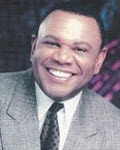New Dentistry, A Partnership For Your Health And Well Being

A world of opportunities for dental health awaits us in the new dentistry. Using the old dentistry, dental professionals did their best to provide a high quality of service given the state of knowledge and technology at that time. Through advancements in treatment, research, and the desire of the dental profession to do more and do it better, the new dentistry has emerged. It is based on a foundation with specific characteristics that are of great benefit to us as consumers.
- Efficiency: Your time and your resources are valuable to you, and your dental professional recognizes this. New treatment techniques and methods have considerably reduced the amount of time that the dental care now takes. The return on your investment in dental health is excellent.
- Comfort: Not only are the dental chairs and the office environments more comfortable and pleasant, improvements in the use of local anesthetics and new equipment provide more comfort than ever before.
- Collaboration: The dental relationship is now based on the value that you can derive from your dental team and what you want for your dental future rather than just on the techniques and procedures your dentist can do. Through continuing education, your dentist has the skills and knowledge to help you make decisions for your dental health in a positive and informed way.
- Predictability: New materials and advances in treatment provide you with opportunities to maintain your dental health throughout your life. With the innovative cosmetic dentistry and specialized approaches to reclaiming teeth that formally would be lost, your dental professional can help create and maintain teeth and gums. Predictable treatment, effective prevention methods, and the longevity of treatment are now part of any treatment plan.
- Thoroughness: Advances in assessment and diagnosis now enable dentists to make thorough evaluations of your overall dental and oral health. The outcome is a plan for your health that will give you peace of mind, knowing you can have a well-informed dental plan in place.
- Prevention: This characteristic of the new dentistry has received much publicity in recent years. It has been proven over and over again that there are several measures that you can take as a consumer of dental care to create and maintain your dental health in collaboration with your dental team. It bears repeating again - flossing and brushing combined with regular dental hygiene checks are your greatest allies in maintaining your teeth and a bright smile.
- Precision: The new dentistry utilizes instruments and technologies that are far advanced from what was available even 15 years ago. Both general dental professionals and specialists have access to technologies that provide precision in diagnosis and treatment. The value for you is higher quality care.
The dental profession has established a strong foundation for a pleasant smile and a healthy dental future for all of us. Improvements are continuously being made to this foundation. You can choose to avail yourself of these improvements by asking your dentist, "What can help me to maintain my dental health?" They have the knowledge and the desire to help you, including information about a wide range of dental payment plans.
By Brian DesRoches, PhD

+Jim Du Molin is a leading Internet search expert helping individuals and families connect with the right dentist in their area. Visit his author page.
Medical and Dental Care Emergencies

The primary purpose of a patient visit to the dental office is to allow their doctor and/or dental auxiliary to perform a dental treatment that will aid in the improvement of their overall oral health. The primary goal of the doctor is to perform this treatment as effectively and as safely as possible. Patients give little thought to the possibility that some unforeseen medical emergency might arise in the period of time during which they are in the dental office.
Many of the things done by the doctor and staff prior to, and during, the dental treatment are done to minimize the risk of a medical emergency. For example, the medical history questionnaire, recording of blood pressure, and discussion of a patient's health history help to determine what potential risks might be present and enables the doctor to modify the planned dental treatment to minimize the potential risks. In many instances, the use of conscious sedation will be indicated as a means of decreasing stress associated with dental care. This is especially important in persons with cardiovascular diseases (such as high blood pressure or angina) who might be somewhat fearful of visiting the dentist. The use of effective drugs for pain control (such as local anesthetics) is yet another means of minimizing the risk of medical emergencies developing during treatment.
In the unlikely event that a medical emergency does occur while a patient is in the dental office, one should know that (it is highly likely) the doctor has received training in the management of medical emergencies that develop frequently.
Amongst the more commonly observed medical emergencies in dental offices are fainting, seizures, acute asthmatic attacks, allergy, and chest pain (angina).
Virtually all of these emergencies occur as a result of fear and anxiety. Therefore, it becomes very important for the patient to advise their doctor if they are apprehensive about their dental treatment. Steps usually can be taken which will prevent these situations from occurring.
Additionally, in many states it is mandatory for all dentists to be certified in basic life support (CPR) on a regular basis. In many dental offices, additional staff personnel are also trained in this very important technique.
Dental offices maintain an emergency supply of oxygen, as well as commonly used emergency equipment and drugs.
And finally, most dental offices are located in close proximity to their community's Emergency Medical Services (EMS) system (9-1-1). A telephone call activating this system will provide well-trained life-saving medical assistance within a few minutes.
By Stanley F. Malamed, DDS











